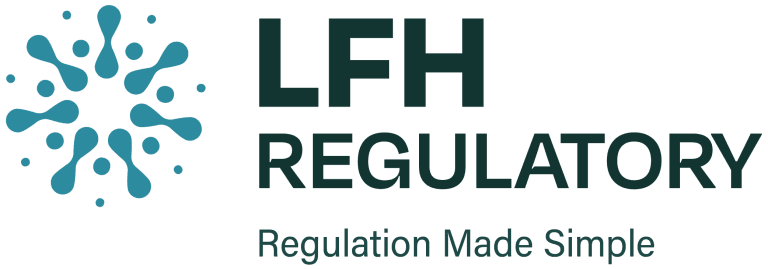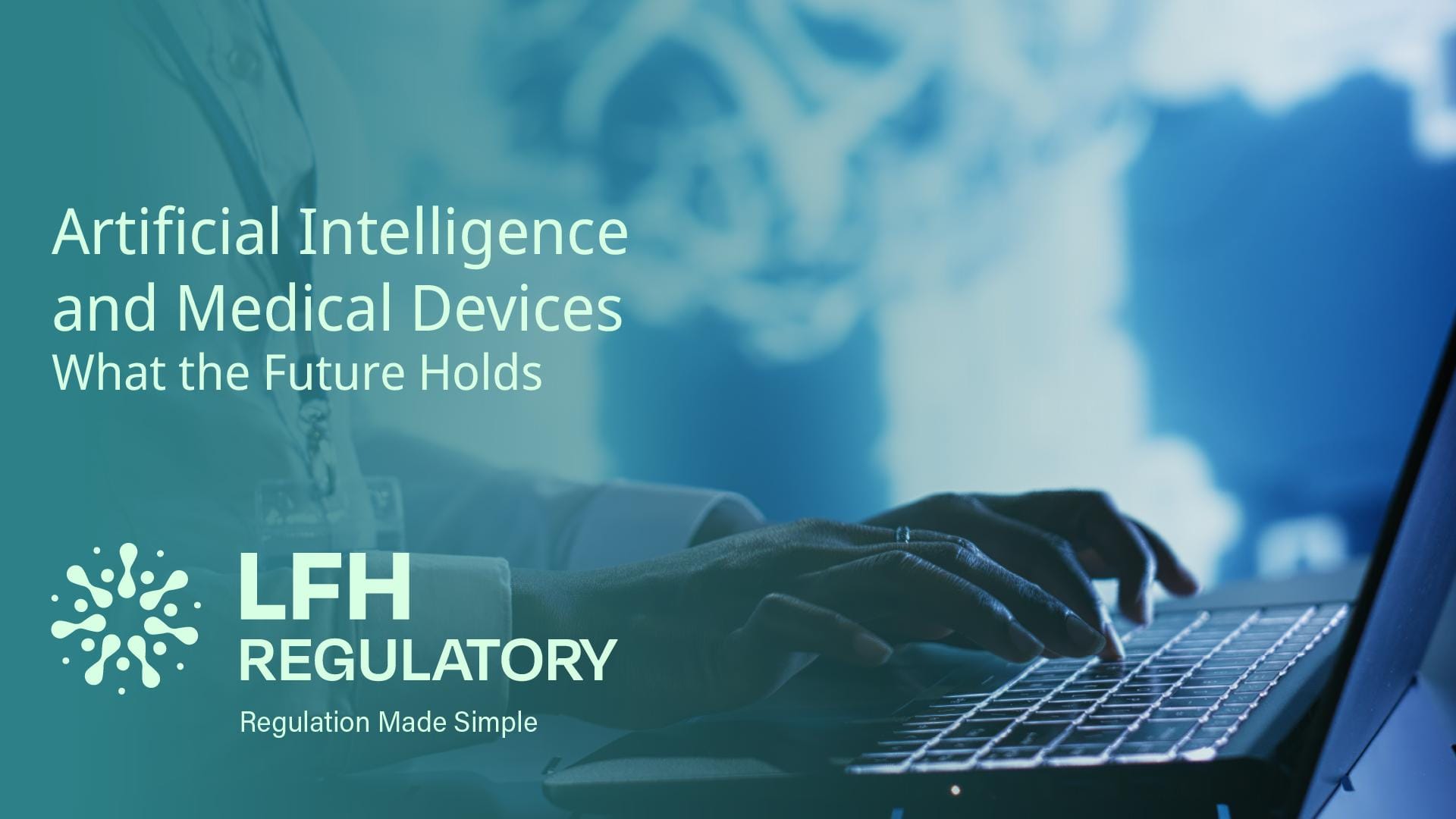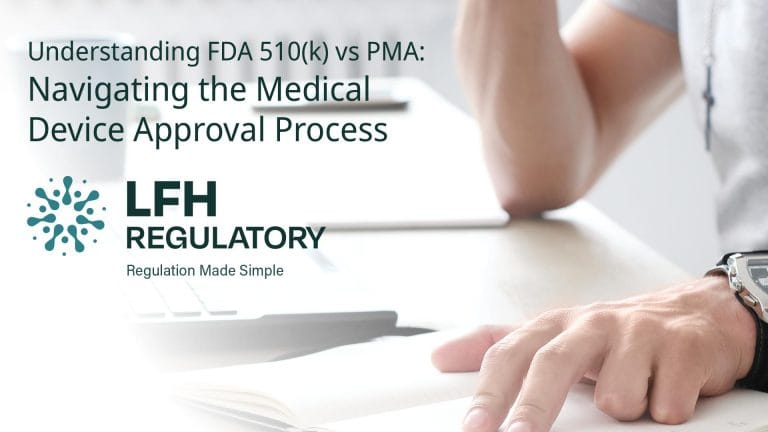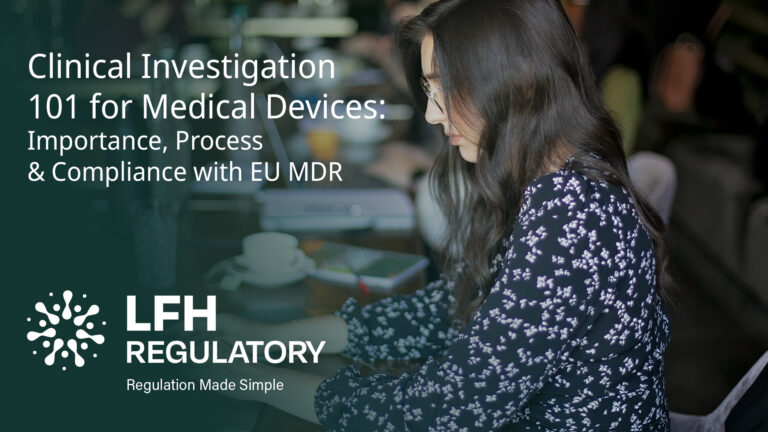Artificial intelligence (AI) has the potential to transform the field of medicine and improve healthcare outcomes for patients. There are several ways in which AI can be used in conjunction with medical devices resulting in potential benefits and improvements in patient care. Let’s explore this in further detail:
- Data analysis: AI algorithms can analyse large amounts of patient data, such as electronic health records, to identify trends and patterns that may not be immediately apparent and visible, with improved accuracy. This can help physicians make more informed diagnosis decisions and provide improved treatment plans.
- Diagnosis and treatment planning: AI-powered medical devices, such as smart stethoscopes and retinal scanners or AI-interpretation software, such as X-Ray imaging or MRI scanning, can be used to assist in the diagnosis of various medical conditions. These devices can also help physicians develop personalised treatment plans for their patients. AI-powered medical devices can streamline processes and reduce the time needed for certain tasks, such as data analysis or monitoring of vital signs. This can help medical professionals see more patients in a given day and improve overall efficiency in healthcare delivery.
- Personalised care: AI can develop personalised treatment plans based on a patient’s specific needs and characteristics. This can help ensure patients receive the most appropriate care for their individual needs.
- Monitoring and detection: AI can continuously monitor patients’ vital signs and alert medical professionals if any unusual changes occur. This can help prevent serious medical events, such as heart attacks or strokes, by giving early detection of the potential symptoms.
- Drug discovery and development: AI can analyse large amounts of data on drug interactions and effectiveness to help identify new potential treatments or optimise existing ones.
However, with every new technology comes great risk and, as a result, here are the potential disadvantages to using AI in conjunction with medical devices:
- Cost: Implementing AI-powered medical devices may be expensive, which could limit access to this technology for some healthcare providers or patients.
- Dependence on technology: There is a risk that medical professionals may become overly reliant on AI and medical devices, potentially leading to a decline in their diagnostic and treatment skills.
- Ethical concerns: There are also ethical concerns surrounding the use of AI in medicine, such as the potential for biased algorithms or the loss of privacy for patients.
- Safety concerns: As with any new technology, there is a risk of technical malfunctions or errors that could compromise patient safety.
Overall, using AI in conjunction with medical devices has the potential to significantly improve the efficiency and accuracy of healthcare delivery, ultimately leading to better patient outcomes.
LFH Regulatory have expert consultants to help you navigate the regulatory landscape to bring your AI device to market. Contact us today to see how we can help.
References:
Artificial Intelligence Solutions for Analysis of X-ray Images: https://pubmed.ncbi.nlm.nih.gov/32757950/
Improving the Speed of MRI with Artificial Intelligence: https://pubmed.ncbi.nlm.nih.gov/31991448/
Artificial intelligence tool could help GPs diagnose heart failure: https://www.htworld.co.uk/news/ai-smart-stethoscope/
Automated retinal scans for early detection of diabetic eye diseases through the use of AI: https://cordis.europa.eu/article/id/425627
Written by Paulina Gorecka, Regulatory Affairs and Quality Assurance Consultant at LFH Regulatory Ltd.
Frequently Asked Questions About AI in Medical Devices
How can AI improve the accuracy of medical diagnoses?
AI algorithms can analyse large volumes of patient data, such as electronic health records and imaging results, to identify patterns that may not be visible to human clinicians. This can improve diagnostic accuracy and support more informed treatment decisions.
What types of AI-powered medical devices are currently available?
Examples include smart stethoscopes, retinal scanners, AI interpretation software for X-rays and MRIs, and monitoring devices that track vital signs in real time.
How does AI contribute to personalised patient care?
AI can develop treatment plans tailored to an individual patient’s characteristics, improving outcomes by providing care that is optimised for their specific needs.
What are the potential risks of using AI in medical devices?
Risks include high costs, over-reliance on technology, ethical concerns (such as algorithm bias and patient privacy), and technical malfunctions that could compromise safety.
Are there regulatory considerations for AI-powered medical devices?
Yes. AI medical devices must comply with regulations such as the EU MDR 2017/745 and IVDR 2017/746. Manufacturers need to ensure software validation, risk management, and clinical evaluation are conducted in line with regulatory requirements.
How can LFH Regulatory help with AI medical devices?
LFH Regulatory provides guidance on regulatory compliance, risk management, clinical evaluation, and CE marking for AI-powered medical devices, helping manufacturers bring safe and compliant devices to market.



